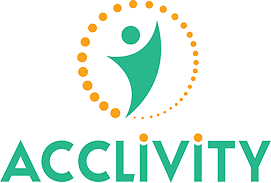In higher education, reputation management refers to the processes and strategies that professionals in the academic field use to influence how the public perceives their roles and institutions. It also entails building the image and reputation of professors, associate professors, and other stakeholders in academic careers. Besides this, reputation management is closely related to career advancement in higher education, making it vital for the professoriate to engage in reputation management. The following sections will discuss some of the essential factors that govern reputation management in higher education.
Career Advancement In Academia
There are several factors that will determine the level of your growth, promotion and advancement in the various careers in academia. Your reputation in the current institution comes first in determining the career opportunities that come on your path. A good reputation avails numerous opportunities, and in many cases, when employment gaps exist in your line of expertise, you are likely to be recommended to fill that position.
Over the years, people that had the right skills, knowledge, and expertise have missed out on golden career opportunities simply because they lacked a good reputation. Most people want to be associated with people that have good reputations. It’s also necessary to keep in mind that a good reputation is a product of consistent behavior that results in character development, and a good reputation is not built online.
Academic Networking
Networking in the academic field provides educators with a platform to sharpen their skills and build their reputations and relationships with other professionals in higher education. In most institutions of higher learning, there are various avenues where professors can meet, relate with each other, and exchange knowledge that will advance their careers.
As you network with other professors you are better equipped to get fresh ideas on how you can go about your teaching and get the best performance from your students. You are also open to new ideas on how to identify challenges and overcome them. Lastly, academic networking, especially with high-ranking professionals, builds your profile, and you get to meet influential people such as recruiters, increasing your chances of getting any job.
Adjunct Faculty Advancement Coaching
Institutions of higher learning usually provide instructors with platforms where they get to teach learners on a short-term basis, typically on contractual terms. For example, the adjunct advancement program for Howard community college runs from mid-June and mid-December. In adjunct faculty coaching, you will get the opportunity to prove your expertise and skills in teaching. In most cases, the institutions of higher learning will require you to introduce various modules to their learners before professors take over the complex parts of the units.
Career Coaching
Career advancement in higher education is dependent on your ability to communicate effectively, meet deadlines, and deliver high-quality work. To ensure you are effective in your career and you are meeting your career goals, you will need the assistance of a career coach. To begin with, career coaching is a learning platform that allows you to access the assistance and guidance you may want in your career and provide remedies to the challenges in your career.
Once you enroll in career coaching programs, you get the opportunity to have your career coach who will be providing you with useful insights to build your reputation, advance in your career, identify gaps and opportunities in your career, etc. To excel in your career, you will need to interact with other successful people in your work line, which is only effective in career coaching programs.
To enroll in the best career program today, contact us at The Acclivity to book an appointment and begin your journey in career advancement.

